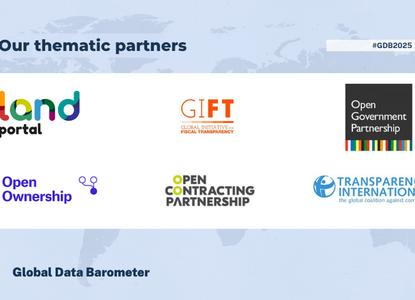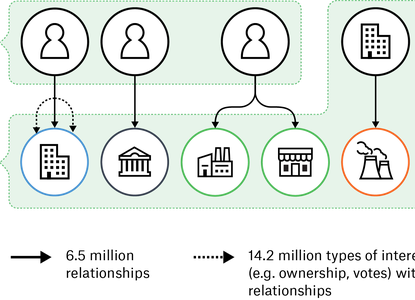What we learned at the OGP Summit 2019

We’ve returned from the 2019 OGP Summit in Ottawa with our spirits high. The event brought together senior government officials and a broad spectrum of civil society organisations to discuss common challenges and new solutions in open government.
In just a year, there’s been tremendous progress in the field of beneficial ownership transparency. And the narrative at the Summit showed how far we have already travelled - beneficial ownership transparency featured prominently in several sessions, and was met with spontaneous applause when mentioned in the opening ceremony. As we digest all the learnings from OGP and get back to work, it feels like we are really at a tipping point in moving towards a global norm of open company ownership information.
We are delighted that countries around the world are making commitments towards beneficial ownership transparency. This is critical if we are to address many of the challenges highlighted at the Summit, including the need to increase trust between companies, governments and citizens, concerns about rising authoritarianism and the shrinking of civic space in many contexts.
Last year, we established an informal Beneficial Ownership Transparency Network. We never thought that only a year later, a governments-led Leadership Group would be launched by John Penrose from the UK government at the Summit’s opening plenary. The Group will support implementers of beneficial ownership transparency across the globe. Latvia, Ukraine and Armenia committed to joining the group and to implementing its Disclosure Principles, with others including Argentina, Nigeria, Norway, Kenya and Indonesia expressing strong support for the initiative and its ambitions. We will be coordinating the Leadership Group, providing integral technical assistance and facilitating discussions on international best practice.
At OGP, we also launched our implementation guide to support Leadership Group members and other governments that are implementing beneficial ownership transparency. We workshopped the guide with implementers and experts from Armenia, Australia, Chile, Indonesia, Kenya, Norway, Slovakia, Ukraine and the UK, facilitating discussions to share experiences and discuss common challenges.
There was positive feedback and animated discussion about our Policy Reviewer tool, which works through seven key policy areas required for beneficial ownership transparency to help implementers understand where and how their legal framework needs strengthening. There aren’t many people in the world who get excited by a 24-page interactive form about the legal framework for beneficial ownership transparency, so it was a real pleasure to host so many of them at our technical meeting and share one of the key resources we’ve been using in our technical assistance work.
While we’re delighted about the significant progress being made towards making beneficial ownership transparency a global norm, there’s a lot of work needed to ensure that this results in policy impact and ends the damage caused by anonymously-owned companies. Sessions at OGP started exploring this at both a global and local level. For example, Jack Lord, our colleague at Open Data Services Cooperative, shared implementation experiences at a meeting convened by Canadians for Tax Fairness to gain a better understanding of particular challenges at the provincial level.
Jack also attended the ‘Implementing Open Contracting and Beneficial Ownership to Combat Corruption in Challenging Contexts’ session, which explored a series of key challenges that participants raised in the discussion. A key concern mentioned was around how we can ensure that beneficial ownership data is accurate/true, which fed into conversations around verification and validation of the information in public registers.
We’ve started to address data accuracy in our briefing on the Five Characteristics of Effective Beneficial Ownership Data, which together help make published data easier to use, more accurate, and interoperable. We’ve also started to consider issues around verification in a 4-part blog series and we will shortly release a briefing on this issue. Well-implemented beneficial ownership registers can also be seen as a catalyst or complement to other transparency and accountability initiatives. For example, they can help to drive the demand for registers of politically exposed persons and provide another tool for countries thinking about asset recovery.
Open Ownership will continue to work with governments implementing beneficial ownership transparency, including Canada, and are excited about the opportunities that the Leadership Group will provide for building best practice and for us to extend and improve upon our tools to support implementers.
Please do get in touch if you are implementing beneficial ownership transparency or using the data available in the register. We’d love to support you through the implementation journey.
Related articles and publications
Publication type
Blog post


